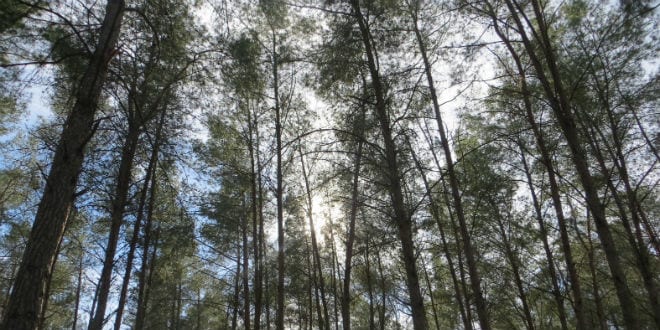The Jewish holiday of Tu B’Shvat [the 15th day of the Hebrew month of Shevat], is known as the “Rosh HaShana” or the “New Year” for trees since it marks the beginning of the agricultural calendar year, according to the Judaic tradition.
Occurring this year on January 25, Tu B’Shvat is traditionally commemorated with a wide range of customs, all showing great appreciation for the beauty, fruits, and healthful benefits that trees provide. The most common practice on Tu B’Shvat is planting trees in Israel.
“Tu B’Shvat is a special time to celebrate and contribute to the physical and spiritual beauty of the Land of Israel,” explained Rabbi Tuly Weisz of Israel365 to Breaking Israel News.

The Bible praises the Holy Land by stating that it is “a land of wheat and barley, and vines and fig-trees and pomegranates; a land of olive-trees and honey” (Deuteronomy 8:8). It is customary on Tu B’Shvat to partake of these seven special foods in the order in which they appear.
The Bible also states that “Man is [compared to] the tree of the field” (Deuteronomy 20:19). Tu B’Shvat is a day to cultivate strong spiritual roots by increasing good deeds. Jews even omit from their daily prayers petitions for forgiveness and confession and instead contemplate what seeds they can plant to lead a fruitful life.
In Israel, Tu B’Shvat is like a Jewish Arbor Day. Environmental awareness programs abound and thousands of trees are planted throughout the country.
“Tree-planting is an ancient Jewish tradition,” noted Rabbi Weisz to Breaking Israel News. “Building up the land of Israel through planting trees is so important that the Talmud states that if a person is planting a tree and hears that the Messiah had arrived, he should finish planting the tree before going to greet him!”
Israel has planted over 240 million trees over the past nearly 100 years, giving it the rare distinction of having a net gain of trees when entering the 21st century. Afforestation is taken seriously here, as one of David Ben-Gurion’s dreams was to make the desert bloom.

Additionally, a form of Arab terror is to burn down Israeli forests. Therefore, in the fight against terrorism, thousands join in tree planting throughout Israel.
“Israel has now passed its Sabbatical year (shmittah), when planting is halted,” Rabbi Weisz told Breaking Israel News. “Now is an opportune time to share in the blessing of planting trees in Israel. People want the merit to rebuild the land after a year of letting it lay fallow.”
If you are not in Israel to partake directly in planting trees, Israel365 has initiated a campaign to encourage donations towards beautifying the Holy Land.
“Judaism teaches that the earth belongs to God but we are his special partners in preserving the planet and its resources,” shared Rabbi Weisz. “Tu B’Shvat is considered the birthday of every tree. I hope people will join us in this special celebration by planting a tree in Israel.”



